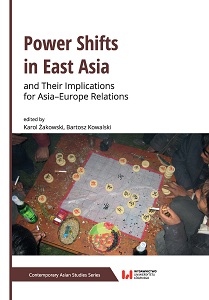Values or Interests? Japan’s Relations with European Countries under the Abe Administration
Values or Interests? Japan’s Relations with European Countries under the Abe Administration
Author(s): Karol Żakowski
Subject(s): Supranational / Global Economy, Public Administration
Published by: Wydawnictwo Uniwersytetu Łódzkiego
Keywords: Japan-EU relations; Abe administration; foreign policy of Japan
Summary/Abstract: Both during his first (2006–2007) and second administrations (since 2012) Prime Minister Abe Shinzō emphasized the gravity of value-oriented diplomacy based on promotion of democracy, free-market economy, human rights, and rule of law. At the same time, however, his foreign policy has been very pragmatic and focused on hard-power-like measures, such as an increase in the deterrence capacity of the Self-Defense Forces. On the one hand, the Japanese government declared its attachment to universal values on the international scene, but on the other hand there were doubts whether it lived up to those values on domestic ground. For that reason, Tokyo has been accused by neighboring countries of treating value-oriented diplomacy as an empty slogan in order to realize national interests. The aim of this paper is to evaluate the role of this dichotomy in relations with Europe. It is examined to what extent Abe declared his adherence to the universal values, and to what extent he really promoted them in Europe. Special emphasis is placed on the discrepancy between Tokyo’s narrative on values in relations with the European Union (EU) on the one side and with Moscow and other undemocratic regimes in Europe on the other.
Book: Power Shifts in East Asia and Their Implications for Asia–Europe Relations
- Page Range: 213-229
- Page Count: 17
- Publication Year: 2019
- Language: English
- Content File-PDF

